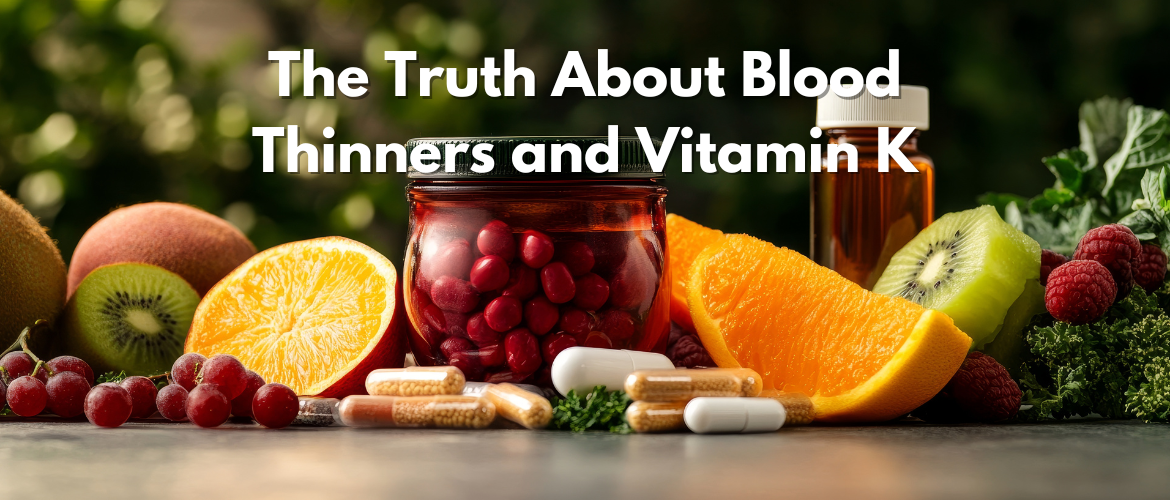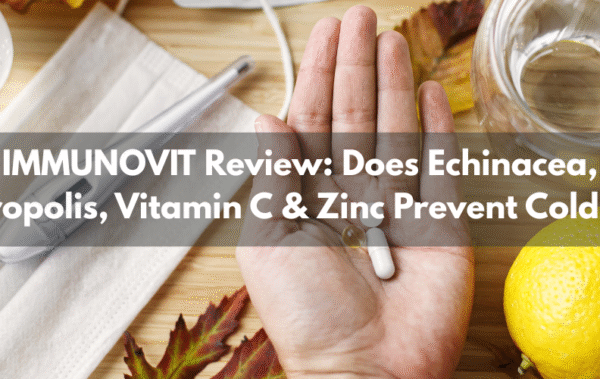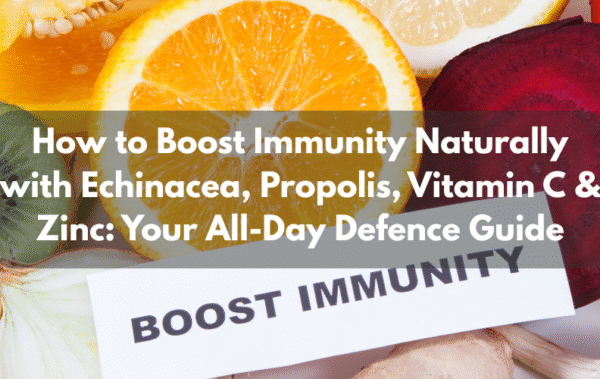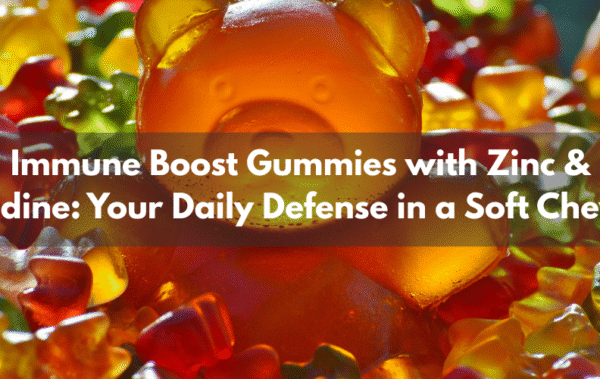No products in the cart.
The Truth About Blood Thinners and Vitamin K

Blood thinners are life-saving medications prescribed to millions of people worldwide to prevent blood clots, strokes, and other cardiovascular complications. However, if you’re taking blood thinners like Warfarin, you’ve likely heard about the importance of managing your Vitamin K intake. But what’s the truth behind this interaction, and how can you safely incorporate Vitamin K foods into your diet?
In this blog, we’ll uncover the science behind Vitamin K, its role in blood clotting, and how it interacts with blood thinners. Whether you’re navigating dietary changes or simply curious about this essential nutrient, this guide will provide clarity and actionable tips.
What Is Vitamin K?
Vitamin K is a fat-soluble vitamin that plays a crucial role in blood clotting and bone health. It helps activate proteins responsible for forming clots, preventing excessive bleeding when injuries occur.
There are two main types of Vitamin K:
- Vitamin K1: Found in leafy greens like spinach, kale, and broccoli.
- Vitamin K2: Found in fermented foods and animal products like cheese and eggs.
While Vitamin K is essential for overall health, its interaction with blood thinners requires careful management.
How Do Blood Thinners Work?
Blood thinners, also known as anticoagulants, prevent blood clots by interfering with the clotting process. Warfarin, one of the most commonly prescribed blood thinners, works by blocking the effects of Vitamin K.
Since Vitamin K is necessary for producing clotting factors, consuming too much or too little can affect how well Warfarin works. This is why consistency in Vitamin K foods is key for individuals on blood thinners.
The Interaction Between Vitamin K and Blood Thinners
Why Does Vitamin K Matter?
When you take Warfarin, your doctor adjusts the dosage based on your Vitamin K intake. Sudden changes in your diet—such as eating large amounts of Vitamin K-rich foods—can reduce the effectiveness of the medication, increasing the risk of blood clots. Conversely, avoiding Vitamin K entirely can lead to excessive bleeding.
Foods High in Vitamin K
If you’re on blood thinners, it’s important to be aware of foods that are high in Vitamin K:
- Leafy greens (spinach, kale, collard greens).
- Broccoli and Brussels sprouts.
- Fermented foods like natto.
These foods are healthy and should not be avoided entirely but consumed in consistent amounts.
Tips for Managing Vitamin K Intake
- Consistency Is Key
Aim to eat similar portions of Vitamin K foods daily to maintain stable levels. For example, if you enjoy a spinach salad one day, try to include a similar serving the next day. - Monitor Your Diet
Keep track of your Vitamin K intake and share this information with your healthcare provider. - Work With Your Doctor
Your doctor may adjust your Warfarin dosage based on your diet. Regular blood tests can help ensure your medication is working effectively. - Balance Your Plate
Pair Vitamin K foods with other nutrient-rich options like lean proteins and whole grains to create a balanced diet.
Can You Avoid Vitamin K Completely?
While it may seem tempting to avoid Vitamin K altogether, this is not recommended. Vitamin K is essential for bone health and other bodily functions. Instead, focus on maintaining a consistent intake and working closely with your healthcare provider to manage your medication.
Final Thoughts
Understanding the relationship between Vitamin K and blood thinners is crucial for maintaining your health and preventing complications. By consuming Vitamin K foods in consistent amounts and working with your doctor, you can safely enjoy a balanced diet while managing your medication.
Remember, the goal isn’t to avoid Vitamin K but to find the right balance that supports your overall well-being. If you have questions or concerns, consult your healthcare provider—they’re there to guide you every step of the way.
Start your wellness journey today — Visit Unike Nutra Now
Follow us
Facebook – https://www.facebook.com/profile.php?id=61567462823245
Instagram – https://www.instagram.com/unikenutra/
Twitter – https://x.com/Unikenutra
Amazon: https://www.amazon.com/stores/UnikeNutra/
Buy Now:






